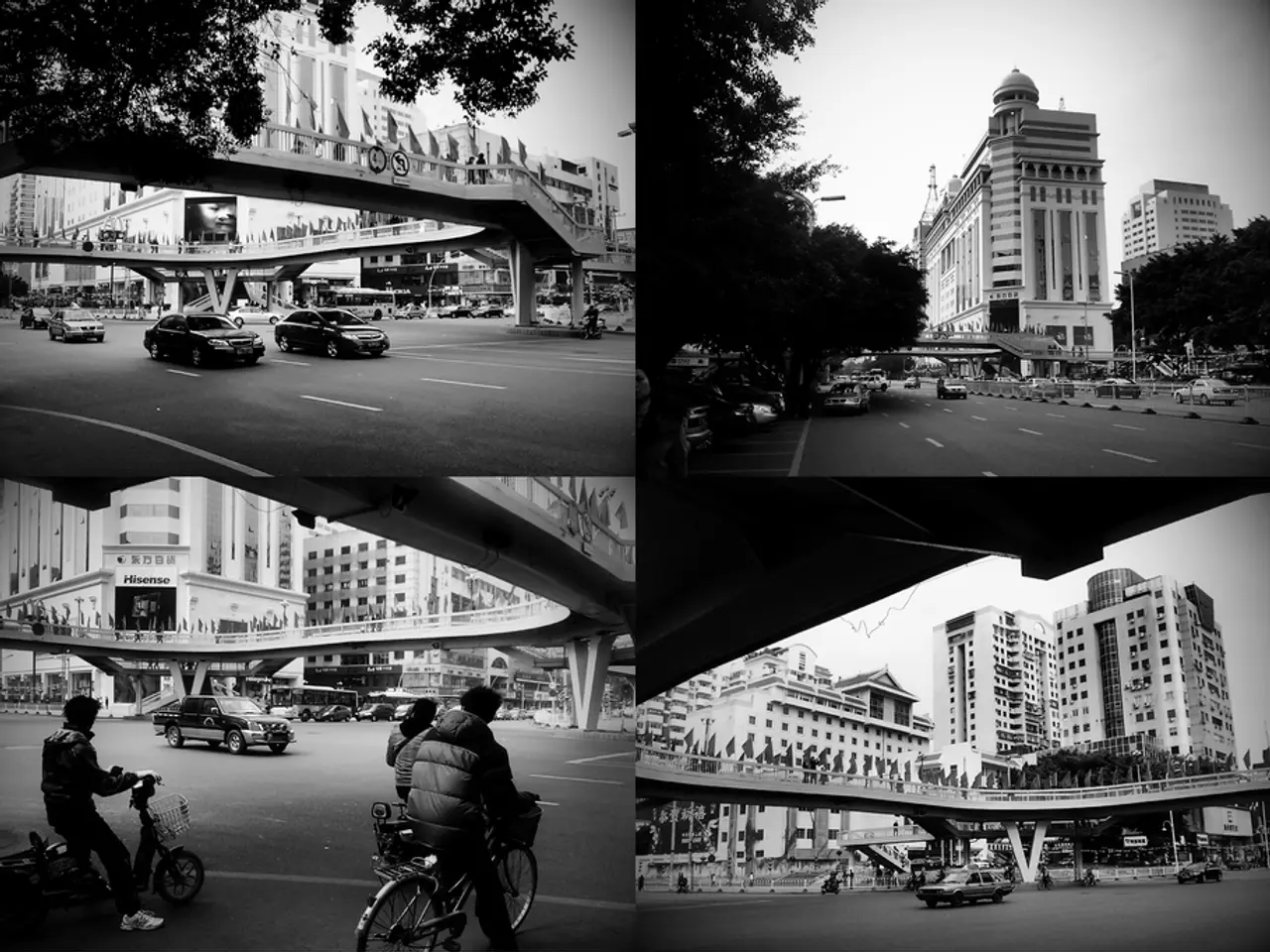Research uncovers that Cologne's parking issues are essentially non-existent
In the heart of Cologne, the bustling Agnesviertel district is under the spotlight, as local company ampido has recently conducted a comprehensive study on the district's parking situation. The study, far from being a mere academic exercise, offers practical insights that could revolutionise parking space utilization in the densely populated area.
The study reveals that Agnesviertel boasts approximately 2,750 public parking spaces, supplemented by around 1,900 private parking spaces. However, the most intriguing finding is that vacancies exist in nearly all German cities, including Cologne, with an estimated 70 percent of parked cars potentially being moved from streets to private underground garages and backyards without new construction, additional land consumption, or investment costs.
The findings provide an impetus to rethink parking space utilization, and the study proposes several potential solutions. One such solution is the implementation of digital booking platforms, allowing residents and visitors to book parking spaces in advance, thereby increasing awareness and efficient use. Flexible parking regulations, where time restrictions or parking fees are adjusted dynamically based on demand, are also suggested to encourage turnover and better space utilization.
Shared use models, where private parking spots are rented out when not in use, is another proposed solution. However, this idea faces hurdles such as liability issues and insurance coverage, which could deter landlords from participating. Real-time parking information, providing drivers with data about available parking spots via apps or digital signage, is another promising solution, aiming to reduce cruising and empty spots. Lastly, integrating parking management with public transportation options is proposed to reduce unnecessary car use and optimize parking needs.
While these solutions hold promise, overcoming behavioural, regulatory, and infrastructural challenges is key to success. Convincing residents and visitors to adopt new technologies or change parking habits can be difficult. Managing data securely and ensuring users’ privacy in digital platforms is a critical issue. Upgrading current parking infrastructure to support smart technologies requires significant investment and coordination. Existing parking laws and regulations may slow down or complicate implementation of flexible and shared parking models. Lastly, ensuring that changes don’t disproportionately disadvantage certain groups, like low-income residents or people without smartphones, is essential.
The study underscores that the parking problem in Cologne's cathedral city is not due to a lack of space, but rather poor utilization of existing parking spaces. The study does not mention any specific obstacles related to data protection or rising parking prices beyond their mention as critical points earlier. Liability issues and insurance coverage could deter landlords from participating in multiple use of parking spaces on private property.
As the city of Cologne continues to grow and evolve, the findings of this study could pave the way for a more efficient and sustainable parking system, benefiting both residents and visitors alike.
- In light of the study's findings, there's an opportunity to improve parking space utilization not only in Agnesviertel but also across the finance, transportation, and industry sectors of Cologne.
- The digital revolution in parking management proposed by ampido could potentially reshape the parking industry, making it more efficient and sustainable, especially in densely populated areas like Agnesviertel.




